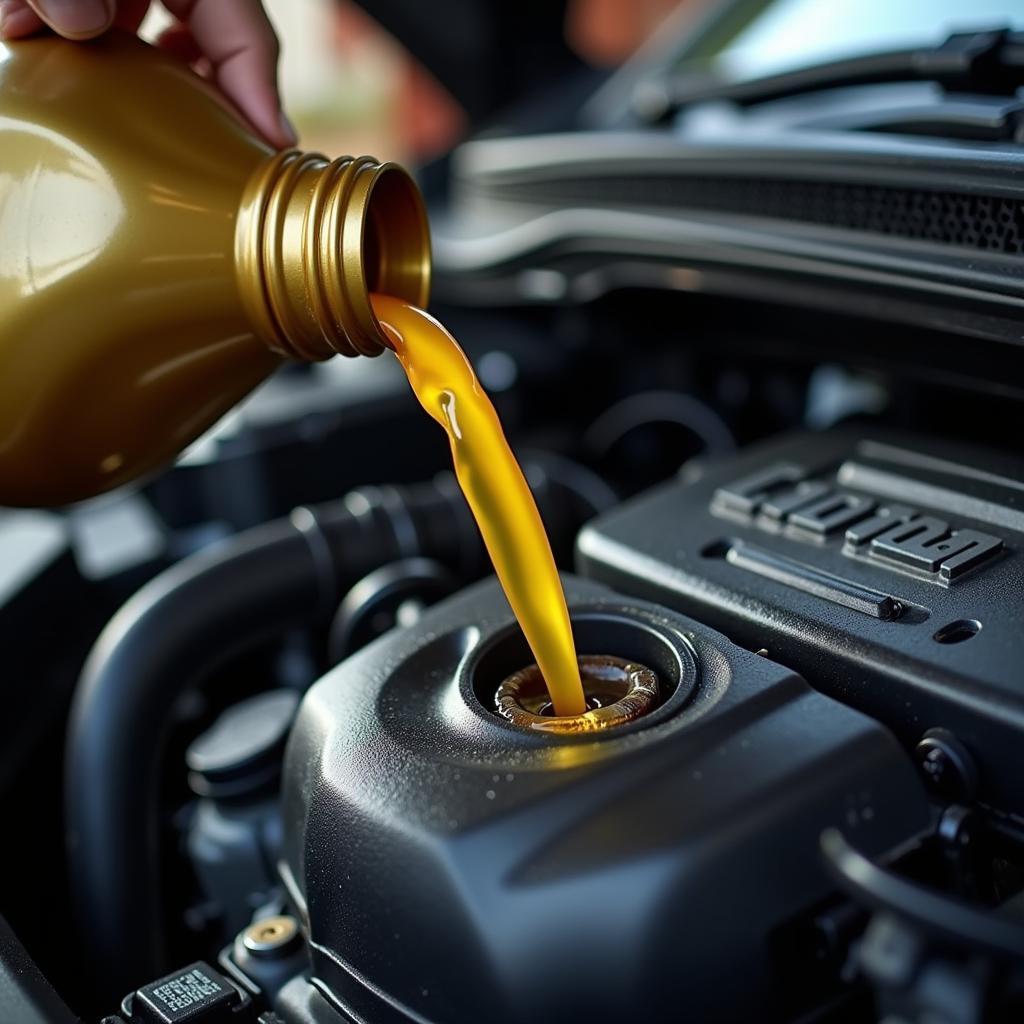Keeping your Hyundai Elantra running smoothly and reliably involves prioritizing the most important maintenance tasks. This comprehensive guide dives deep into the essential upkeep for your Elantra, offering expert advice and practical tips to help you maximize its lifespan and performance.
Understanding Your Hyundai Elantra’s Maintenance Needs
Maintaining your Hyundai Elantra doesn’t have to be a daunting task. By understanding its specific needs and following a regular maintenance schedule, you can avoid costly repairs and ensure a safe, enjoyable driving experience. This involves everything from regular oil changes to more complex procedures like timing belt replacements.
Why Regular Maintenance Matters for Your Hyundai Elantra
Regular maintenance is crucial for the longevity and performance of your Hyundai Elantra. Just like any complex machine, your car requires consistent care to function optimally. Ignoring essential maintenance can lead to decreased fuel efficiency, costly repairs, and even safety hazards.
- Enhanced Performance: Regular maintenance ensures that your Elantra operates at peak performance levels, delivering optimal fuel economy and a smooth, responsive driving experience.
- Preventative Measures: Addressing minor issues early on prevents them from escalating into major problems that require extensive and expensive repairs.
- Safety First: Regular maintenance contributes significantly to the safety of your vehicle, ensuring that critical components like brakes and tires function correctly.
Essential Maintenance Tasks for Your Hyundai Elantra
From simple checks you can perform at home to more involved procedures best left to professionals, here’s a breakdown of the most important maintenance tasks for your Hyundai Elantra:
- Regular Oil Changes: Change your Elantra’s oil every 3,000-5,000 miles or as recommended in your owner’s manual. This helps lubricate the engine and prevent wear and tear.
- Tire Rotations and Pressure Checks: Rotate your tires every 5,000-7,500 miles to ensure even wear and maintain optimal handling. Check your tire pressure regularly, ideally monthly.
- Brake Inspections and Pad Replacements: Inspect your brake pads and rotors regularly for wear and tear. Replace them as needed to ensure safe and effective braking.
- Air Filter Replacement: Change your air filter every 12,000-15,000 miles to ensure clean air flows into the engine, promoting optimal combustion.
- Coolant System Flush: Flush your coolant system every 30,000-60,000 miles to prevent corrosion and maintain the engine’s operating temperature.
- Spark Plug Replacement: Replace your spark plugs as recommended in your owner’s manual, typically every 30,000-100,000 miles depending on the type.
- Timing Belt Replacement: The timing belt is a critical component; replace it at the interval specified in your owner’s manual, usually between 60,000 and 100,000 miles.
 Hyundai Elantra Oil Change
Hyundai Elantra Oil Change
What if I Hear a Strange Noise?
Unusual noises from your Elantra can indicate various problems, from minor issues like loose belts to more serious problems with the engine or transmission. It’s important to address these promptly.
“Ignoring unusual noises can lead to more significant and costly repairs down the line,” says David Miller, ASE Certified Master Technician. “A simple squeak today could turn into a major engine problem tomorrow.”
Most important maintenance for cars hyundai elantra: FAQs
What are the signs my Elantra needs an oil change?
Signs your Elantra needs an oil change include low oil levels, dirty oil, unusual engine noises, and decreased fuel efficiency.
How often should I rotate my tires?
Rotate your tires every 5,000-7,500 miles, or as recommended in your owner’s manual.
What can cause squeaking brakes?
Squeaking brakes can be caused by worn brake pads, glazed rotors, or other issues with the braking system.
Why is my Elantra overheating?
Overheating can be caused by low coolant levels, a faulty thermostat, a malfunctioning radiator fan, or other issues with the cooling system.
How often should I check my tire pressure?
Check your tire pressure monthly, and before long trips, using a reliable tire pressure gauge.
Why is regular maintenance important?
Regular maintenance ensures your Elantra runs reliably, efficiently, and safely, preventing costly repairs and extending its lifespan.
“Preventive maintenance is always cheaper than reactive repairs,” advises Sarah Chen, Automotive Engineer. “Investing in regular maintenance for your Hyundai Elantra is an investment in its long-term health and your peace of mind.”
In conclusion, prioritizing the most important maintenance for cars hyundai elantra, including regular oil changes, tire rotations, brake inspections, and other essential tasks, is vital for maintaining its performance, reliability, and safety. Following the recommended maintenance schedule in your owner’s manual and addressing any issues promptly can help prevent costly repairs and ensure a smooth, enjoyable driving experience for years to come. Need help? Connect with the experts at AutoTipPro. Call us at +1 (641) 206-8880 or visit our office at 500 N St Mary’s St, San Antonio, TX 78205, United States.




Leave a Reply